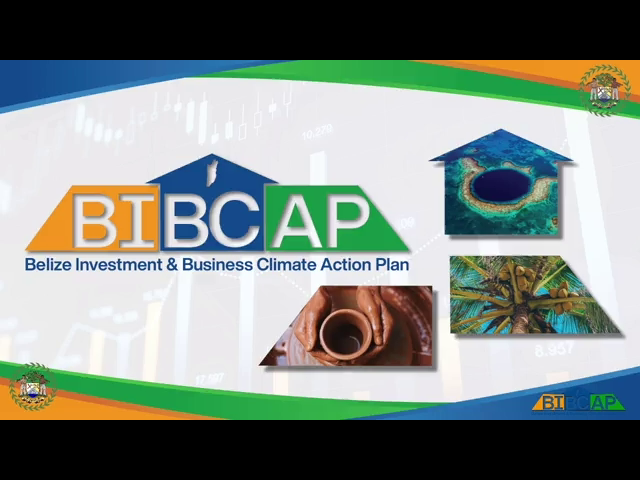The Government of Belize is seeking to reform the way we do business and facilitate investments as a country. That is why, this morning G.O.B. launched its Belize Investment and Business Climate Action Plan. Three public institutions have been identified to lead the charge in this initiative. They are the Investment Policy and Compliance Unit, the Economic Development Council, and BELTRAIDE. The overall objective is to unlock greater business opportunities and secure a prosperous economic future for all Belizeans. News Five’s Paul Lopez reports.
Paul Lopez, Reporting
In its pursuit to promote an effective investment and business climate, the Government of Belize has undertaken an initiative to harmonize three of its key business and investment policies under one umbrella strategy. That is the Belize Investment and Business Climate Action Plan or BIBCAP. Doctor Leroy Almendarez, the Executive Director at BELTRAIDE, spoke about the statutory body’s role in the initiative at its launch this morning.
Dr. Leroy Almendarez, Executive Director, BELTRAIDE
“Today we are launching this initiative called the Belize Investment and Business Climate Action Plan. This looks at wholesomely the whole environment we are doing in Belize. Many times we might say we are open for business but are we making sure we are addressing any challenges for persons who potentially want to do business in the country. Are we addressing that? So this has to do or really it is an output from three different initiatives, one being the National Investment Policy and Strategy, the MSME Policy and Strategy and an Export Competitiveness Road Map. In essence, we look at are we ready for investment to come into this country and when we talk about investments it is not only foreign investments but also local investments? Are we meeting their needs, do we have the legislation? Yes, we have new legislation and the new legislation makes it much easier to do business.”
BIBCAP has been established on nine key policy pillars that seek to increase facilitation of domestic and foreign investments, foster MSME growth and development, promote innovation, and enhance Belize’s overall competitiveness across the region. Ishmael Quiroz, the Executive Director of the Economic Development Council, explained that technical groups have been created to take action on these objectives.
Ishmael Quiroz, Executive Director, Economic Development Council
“Today’s event is actually the activation of technical working groups that will be tasked with implementing the nine pillars of the now Belize investment and Business Climate Action Plan. So, what we have brought together are the action owners, the technical persons involved from the public and private sector and other organizations that have a role to play in actioning the items that are to be delivered. Today’s event is meant to bring everyone together so that everyone is on the same page in terms of the objectives, the tasks that need to be completed and their critical role in achieving success.”
In its totality, the nine pillars identified two hundred and sixty-six actions for which a total of sixty-seven deliverables have been identified. It is expected that by 2030, Belize’s business and investment climate will be one of the most advanced in Central America and the Caribbean. Lincoln Blake, the Director of the Investment Policy and Compliance Unit, is leading the charge in developing the policies to this end.
Lincoln Blake, Director, Investment Policy and Compliance Unit
“Our strength within that organization or structure is policy. We drive the policy changes and recommendations for there to be change and objective to be met. One of the main objectives of BIBCAP is that by 2030 we expect to be a significant investment hub within the Caribbean and Central America. So all of our initiatives, the two hundred and sixty-six actions are geared towards that objective and the deliverable of that objective. We have sixty-seven. The main deliverable is to produce employment, increase production and diversify the economy. Hence, having a better standard of living, that is the main drive behind it. We are already looking at ways to fast track investments. We are looking at amendments to the Designated Processing Areas Act, the Fiscal Incentives Act. We have created more tools for the enhancement and support of MSMEs because they are one of the key drives for the economy.”
Reporting for News Five, I am Paul Lopez.
